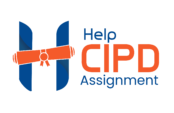Table of Contents
Assessment questions
AC 1.1 Make responsible decisions by considering different ethical perspectives.
To make responsible decisions, it is important to think about what is right and fair from different ethical viewpoints. Here are a few key perspectives to consider:
- Consequences (Utilitarianism): Think about the outcomes of your decision. Will it benefit the most people or cause the least harm?
- Rights and Duties (Deontology): Consider whether your decision respects the rights of others and follows rules or principles, such as honesty or fairness.
- Fairness (Justice): Reflect on whether your choice is fair and treats everyone equally or provides extra help to those who need it.
- Care: Focus on the relationships involved and how your decision impacts others’ well-being and emotions.
AC 1.2 Enable people to have a meaningful voice by involving them in decisions that impact them.
To ensure people have a meaningful voice, it is important to actively involve them in decisions that affect their lives or work. This means creating opportunities for them to share their opinions, ideas, and concerns. Listening to their input shows respect and helps build trust.
For example, you can hold discussions, surveys, or meetings to gather their views. Encourage open and honest communication so they feel valued and heard. When people are involved in the decision-making process, they are more likely to support the outcomes and feel a sense of ownership.
AC 1.3 Self-evaluate personal integrity and professional courage in relation to ethical practice.
To self-evaluate personal integrity, you need to reflect on how well you uphold your values, principles, and honesty in your actions and decisions. Ask yourself if you consistently do the right thing, even when it is difficult or no one is watching. This shows a commitment to fairness and ethical behavior.
Professional courage involves standing up for what is right, even in challenging situations. Reflect on whether you are willing to speak out against unfairness or unethical practices, even if it feels uncomfortable or risky. Consider times when you faced ethical dilemmas—did you act in a way that aligned with your values and professional standards?
AC 1.4 Collaborate across organisation boundaries, cultures and other disciplines, including the value of embracing difference.
Collaboration across boundaries means working with people from different teams, departments, cultures, or areas of expertise. It involves building connections beyond your immediate group to share knowledge, ideas, and skills.
To collaborate effectively, it is important to respect and embrace differences, such as diverse perspectives, experiences, and ways of working. These differences can bring fresh ideas and solutions to problems, leading to better outcomes.
By fostering open communication and mutual respect, you create a positive environment where everyone feels valued. This approach not only strengthens relationships but also helps the organization achieve its goals more effectively. Embracing diversity and collaboration builds a stronger, more inclusive workplace.
AC 2.1 Reflect on levels of self-awareness and self-management, leading to improved organisational success.
Self-awareness means understanding your own strengths, weaknesses, emotions, and how your behavior affects others. By reflecting on your actions and reactions, you can better identify areas for personal growth and improvement.
Self-management involves controlling your emotions, staying calm under pressure, and staying focused on your goals. It also includes managing your time effectively and adapting to challenges.
When you reflect on and improve these skills, you become more productive, make better decisions, and communicate more effectively. This positively impacts your team and helps the organization achieve its goals, creating a culture of success and continuous improvement.
AC 2.2 Use business acumen to deliver commercial benefits and manage organisational resilience.
Business acumen means having a good understanding of how a business operates and what makes it successful. It involves knowing how to make decisions that increase profits, reduce costs, and create value for the organization.
To deliver commercial benefits, focus on activities that improve efficiency, meet customer needs, and help the organization achieve its financial goals. This could involve identifying new opportunities, solving problems effectively, or finding ways to work smarter.
Managing organizational resilience means preparing the business to handle challenges, such as economic changes or unexpected risks. This involves planning ahead, adapting quickly, and ensuring the organization can recover and continue to grow.
AC 2.3 Demonstrate impactful behaviour that is aligned with wider organisational vision, values, strategies and plans.
To demonstrate impactful behavior, your actions should reflect and support the organization’s vision, values, and goals. This means understanding what the organization stands for and what it aims to achieve, then aligning your behavior with those priorities.
For example, if the organization values teamwork, you should actively collaborate with others and support your colleagues. If innovation is part of the strategy, you can contribute by sharing creative ideas and embracing new ways of working.
Your behavior should not only focus on achieving personal success but also contribute to the overall success of the organization. By staying aligned with its vision and values, you set a positive example, inspire others, and help drive the organization’s long-term goals.
AC 3.1 Demonstrate curiosity and passion for deep learning.
Demonstrating curiosity means showing a strong desire to learn, explore, and understand new ideas, skills, or knowledge. It involves asking questions, seeking out information, and staying open to new perspectives.
Passion for deep learning goes beyond surface-level understanding. It means being genuinely interested in gaining a deeper knowledge of your field, exploring topics in detail, and continuously improving your expertise.
You can show this by actively engaging in learning opportunities, such as training, research, or discussions. Staying curious and passionate helps you grow personally and professionally, keeping you adaptable and well-prepared for challenges.
AC 3.2 Demonstrate continuing professional development that involves both planned learning and reflection.
Continuing professional development (CPD) means actively working to improve your skills and knowledge throughout your career. This includes planning your learning activities, such as attending training, taking courses, or gaining new experiences that help you grow in your role.
Reflection is equally important. It means thinking about what you’ve learned, how it applies to your work, and how it can help you improve. By reflecting, you can identify what worked well, what could be better, and what you need to focus on next.
Balancing planned learning with regular reflection ensures your development is purposeful and meaningful, helping you stay effective and up-to-date in your profession.
AC 3.3 Network to enhance own career and contribution to organisational effectiveness.
Networking means building and maintaining professional relationships with people inside and outside your organization. It involves connecting with colleagues, industry experts, and other professionals to exchange ideas, share knowledge, and learn from one another.
By networking, you can gain valuable insights, discover new opportunities, and stay updated on industry trends. This can help you grow in your career and develop skills that make you more effective in your role.
At the same time, your networking efforts can benefit your organization by bringing in fresh ideas, new partnerships, or resources that support its goals. Strong professional connections can improve collaboration and help the organization achieve greater success.
AC 3.4 Share knowledge and learning to promote organisational success.
Sharing knowledge and learning means passing on useful information, insights, and skills to others within the organization. This could involve teaching a colleague something you’ve learned, sharing helpful resources, or discussing ideas that can improve processes or solve problems.
When you share your knowledge, you help build a culture of collaboration and continuous improvement. It ensures that everyone has access to the information they need to do their jobs well, which can lead to better decision-making and stronger performance.
By promoting a learning environment where knowledge is shared freely, you contribute to the overall success of the organization. It helps the team grow together, adapt to change, and achieve its goals more effectively.
AC 4.1 Assess approaches to decision-making on complex issues, taking ownership to remedy mistakes.
When faced with complex issues, it’s important to carefully assess different approaches before making a decision. This involves looking at all available information, considering possible outcomes, and weighing the pros and cons of each option.
If you make a mistake during the decision-making process, it’s crucial to take responsibility for it. Instead of blaming others, you should own up to the mistake, learn from it, and take the necessary steps to fix it. This may involve adjusting your approach, making new decisions, or seeking support to resolve the issue.
AC 4.2 Demonstrate appropriate influencing style to communicate and engage with different audiences.
To effectively communicate with different audiences, it’s important to adapt your influencing style based on who you are speaking to. For example, when talking to a team, you might focus on collaboration and support, while with senior leaders, you may need to be more data-driven and focused on results.
Understanding the needs, preferences, and values of your audience helps you engage them more effectively. If you’re speaking to a group that values clear and concise information, adjust your message to be straightforward. If you’re addressing a more creative team, you might use storytelling or invite brainstorming.
AC 4.3 Promote organisational improvement through courage, political acumen and the willingness to challenge.
Promoting organizational improvement means actively working to make the business better. To do this, you need courage to speak up when something isn’t right or when change is needed, even if it’s uncomfortable or risky.
Political acumen involves understanding the dynamics and relationships within the organization. Knowing how decisions are made and who influences them helps you navigate situations more effectively and push for positive change.
Being willing to challenge the status quo means questioning current practices or ideas that might not be working. It involves offering new solutions, proposing improvements, and encouraging others to think differently.
AC 4.4 Use and apply evidence-based critical thinking in your work.
Evidence-based critical thinking means making decisions and solving problems based on facts, data, and solid evidence rather than assumptions or opinions. When you apply this approach, you gather relevant information, analyze it carefully, and consider different perspectives before making a conclusion.
For example, if you’re facing a business challenge, you would look at data, past experiences, or research to guide your decisions, rather than relying on guesses. This helps you make informed choices that are more likely to lead to successful outcomes.



